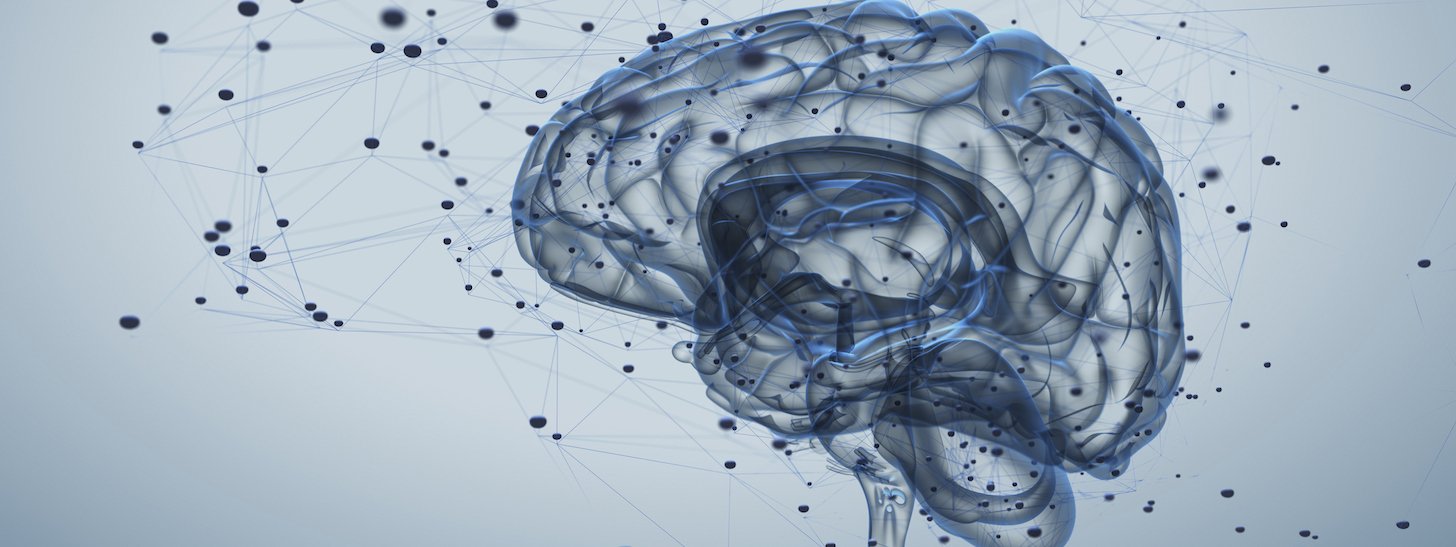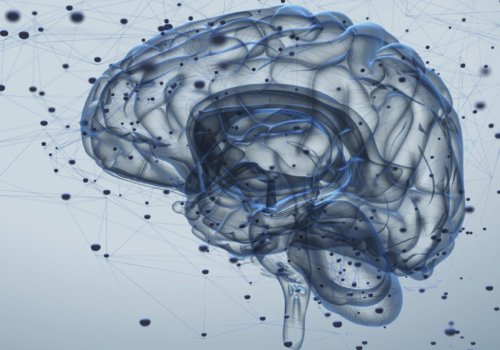New Research on Opioid Use in Migraine Reveals Challenges of Acute Migraine Care as Revealed in Studies to be Presented at AHS 61st Annual Scientific Meeting
New Research on Opioid Use in Migraine Reveals Challenges of Acute Migraine Care as Revealed in Studies to be Presented at The American Headache Society 61st Annual Scientific Meeting
AHS POV: “As new treatment options designed specifically to prevent and treat the often excruciating pain and associated symptoms of migraine, the number of patients requiring pain relief through opioids will likely decrease. Physicians and patients must work together to identify the most appropriate treatment plan tailored to each patient for managing this chronic and often debilitating health condition,” said Andy Charles, Chair of the Scientific Program Committee.
Three observational studies to be presented at the American Headache Society (AHS) 61st Annual Scientific Meeting in Philadelphia, July 11-14, provide insight into how opioids are being used to treat migraine in a range of acute care settings.
“Opioids are generally not recommended for the treatment of migraine due to limited evidence for efficacy, the risk of dependence and the evidence that opioid treatment is a risk factor for headache exacerbation. The very medication that relieves pain short term may lead to the onset of chronic migraine,” said Richard Lipton, MD, FAHS and American Headache Society Past President and lead investigator on two of the three studies being presented. “Given the chronic nature of migraine, it is critical to find solutions that go beyond acute management, yet we also must be compassionate when patients are experiencing the pain of a migraine attack.”
Migraine Treatment in Emergency Setting
An analysis of a de-identified, longitudinal electronic health records database from 2010-2016 looked at 14,494 unique emergency department (ED) visits by adolescents and young adults with diagnosed migraine. In 23 percent of those visits, healthcare providers ordered an opioid within 12 hours of emergency department admission, and in more than half of these cases (58 percent), an opioid was ordered as first-line therapy. Titled “Rates and Predictors of Using Opioids in the Emergency Department to Treat Migraine in Adolescents and Young Adults,” the study also revealed that the likelihood of opioid administration was significantly higher if a patient was older and seen by a surgical specialist versus an emergency medicine physician. However, rates of administering opioids to treat migraine in the emergency department significantly decreased during the observation period.
Impact of Formal Migraine Diagnosis on Treatment Plan
An analysis from the Chronic Migraine Epidemiology and Outcomes (CaMEO) Study looked at 2,388 respondents who reported currently using or having on hand acute prescription pain medication to treat migraine. Surprisingly, 36.3% of this sample used opioids. Compared to non-opioid users, patients taking opioids reported elevated monthly headache days, use of emergency care for headache treatment, allodynia, depression and anxiety, and CV comorbidity. However, the study recognized a trend in decreased opioid use when a formal migraine diagnosis is made by a physician. Making a specific migraine diagnosis increases the use of treatments specific for migraine rather than general pain killers such as opioids.
Opioid Use and Mental Health Factors in Migraine Care
A separate analysis looking at data collected through an observational study of 21,143 people living with migraine found that patients reporting current or former opioid use for pain were more likely to experience depression or anxiety in addition to pain when compared to those with migraine who never used opioids. This analysis was based on data collected from the ObserVational survey of the Epidemiology, tReatment and Care of MigrainE (OVERCOME) study. From this cross-sectional study it is difficult to know if taking opioids contributes to the development of depression and anxiety or if depression and anxiety are associated with the prescribing of opioids.
Research reinforces a connection between opioid use in migraine treatment and negative impacts like depression, anxiety and CV comorbidity. Patients have been shown to benefit greatly from alternative and targeted treatment options when they are able to work closely with a migraine specialist to develop a personalized treatment plan.
About Migraine
Migraine is a disabling neurological disease that affects more than 37 million women, men, and children in the United States. Migraine impacts one in four households, one in five women, one in sixteen men and one in eleven children in the United States. Globally, migraine affects one billion people. In fact, the World Health Organization recognizes migraine as one of the top ten most disabling diseases in the world. Living with migraine is disabling and tends to impact individuals in their most prime years of life. The debilitating nature of migraine is mostly caused by its symptoms, which can vary from person to person and from one migraine attack to another. Migraine attacks may include symptoms like nausea, sensitivity to light, sensitivity to odors, skin sensitivity, fatigue, mood change, dizziness, difficulty concentrating, changes in speech, neck pain and changes in vision (aura) that may include seeing spots, stars, lines, flashing lights, and zigzag lines. Unlike other chronic illnesses, migraine does not have a test that will lead to a diagnosis. Alongside the many physicians and advanced practice providers, patient advocates and patient advocacy organizations are working each day to ensure those living with migraine have an accurate diagnosis, proper treatment plans, and are driving awareness to ensure research is appropriately focused on finding targeted therapies. The goals of the physicians, advanced practice providers and patient advocates supporting those living with migraine are to ensure that no person living with migraine is alone and that they have access to accurate information and credible resources.
About the American Headache Society
The American Headache Society (AHS) is a professional society of healthcare providers dedicated to the study and treatment of headache and face pain. The Society’s objectives are to promote the exchange of information and ideas concerning the causes and treatments of headache and related painful disorders. Educating physicians, health professionals and the public and encouraging scientific research are the primary functions of this organization. AHS activities include an annual scientific meeting, a comprehensive headache symposium, regional symposia for neurologists and family practice physicians, and publication of the journal Headache. More information can be found at www.americanheadachesociety.org. In 2010 AHS founded the American Migraine Foundation (AMF) to provide access to information and resources for individuals living with migraine, as well as their loved ones. AMF is dedicated to the advancement of research and awareness surrounding migraine, with a mission to mobilize a community for patient support and advocacy, as well as drive and support impactful research that translates into treatment advances for patients with migraine and other disabling diseases that cause severe head pain. Patients can learn more, find help and get connected by visiting www.americanmigrainefoundation.org.
CONTACT: Alyssa Bleiberg, Alyssa.Bleiberg@SyneosHealth.com, +1 212 845 5628 and +1 973 432 7289
AHS/AMF Websites
Disclaimer
The American Headache Society (AHS) is a professional society of health care providers dedicated to the study and treatment of headache and face pain. The American Migraine Foundation, founded by the AHS in 2010, provides access to information and resources for individuals living with migraine, as well as their loved ones. AMF is dedicated to the advancement of research and awareness surrounding migraine, with a mission to mobilize a community for patient support and advocacy, as well as drive and support impactful research that translates into treatment advances for patients with migraine and other disabling diseases that cause severe head pain.
We intend to offer factual, up-to-date news and information, answers to questions on relevant subjects, and informed opinion. The information is not and should not be regarded as a complete analysis of these subjects. The reader should consult physicians or other medical professionals prior to making any diagnostic, treatment, or other health care decisions. In no case should someone make any changes to current therapy based on the information presented on the AHS or AMF site or any other web site without first consulting with a physician or other qualified health care provider.
Health professionals reading the provided information should consult primary sources and the official, complete prescribing information before making any treatment decisions, including the use of any drug or treatment referred to on this site.
In its information, AHS and AMF may offer news, reports, or other information concerning drugs, dosages, indications, usages, biological compounds or agents, devices, or treatments that are not now approved for use in the United States or elsewhere and may never be approved. AHS and AMF do not advocate or recommend adopting any treatment modality based solely on any of the information provided. Again, it is the responsibility of the reader to consult with qualified health professionals before making any diagnostic, treatment, or other health care decisions. Similarly, it is the responsibility of any health care professional to refer to the full prescribing information before making any treatment decisions regarding their patients.
No party associated in any way with this site or its contents assumes liability for any injury, loss, or damage resulting from the use or misuse of any information contained herein or for any errors or omissions. AHS, AMF, any sponsor, provider of content, or referenced source cannot be held responsible for the validity of the information contained herein, nor for the use or misuse of information or for any adverse effects that may result from use of any information or materials presented herein; nor for any direct or consequential damages.
AHS and AMF do not offer medical advice. Readers should seek medical advice from a licensed physician or other qualified health care professional and not rely on information they may gather from secondary sources such as the internet.
Privacy Policy
The American Headache Society respects the privacy of patients and visitors who use our website. Any information that an individual submits on a voluntary basis will be used for the sole purpose for which it is submitted.


